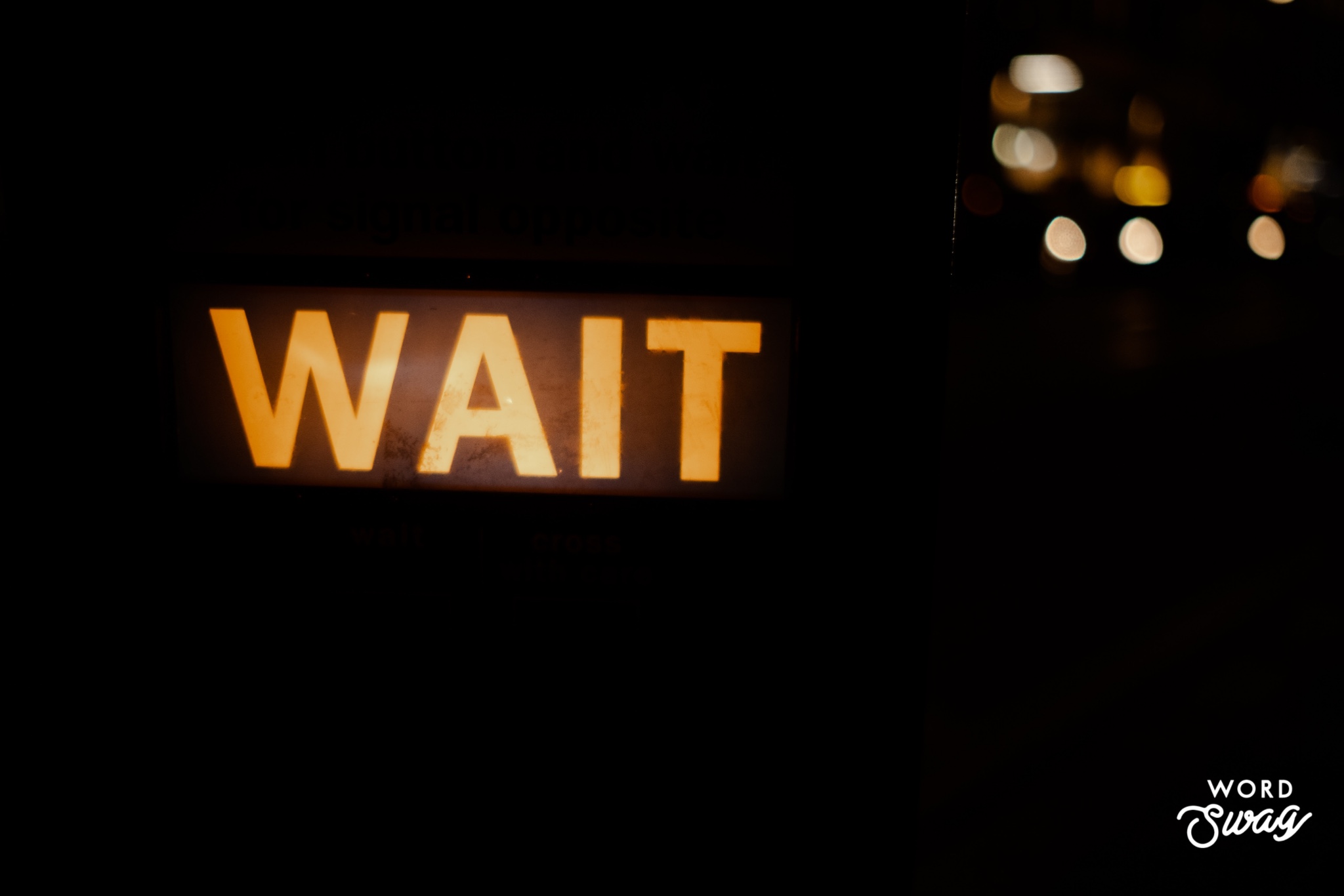We don’t like to wait. Everything in our world is becoming faster and faster, so we don’t have to wait. The information of the world is at our fingertips with our phones so that we can access it anytime we wish. We order packages online that, at times, can be delivered the same day. We are a generation of the immediate.
Built into the Church Year are times of waiting. Advent, the four weeks before the Christmas season, is one of those times of waiting. The Church Year is not a biblical law that must be obeyed lest you be in danger of hell. The Church Year is a discipleship tool, a time of instruction to teach the life of Christ in an embodied way so that people not only think about the propositional truths of Christ but also, in some small way, feel the rhythms of the life of the incarnate Son. Advent is the anticipation of his coming. Anticipation means waiting, and we don’t like to wait.
In our modern Western Church culture, we tend to want to flatten everything out. Whether it is always mourning over sin or always rejoicing in victory, our lives become a monotonous chant. We’ve got no rhythm. There are always those out there who like to proudly say things such as, “I’ll play Christmas music all year round.” There is nothing wrong with that. Do your thing. But sometimes, this is a grand exercise in missing the point. As an adult, I can eat pecan pie for every meal if I so desire. Fine. What I can do and what is good for me are not always the same.
Since the beginning, man has always wanted to jump ahead to the next thing. The sin of Adam was that he couldn’t wait. We need the discipline of waiting. Advent is one tool that is designed to teach us how to wait in a godly fashion.
You see, in one sense, all of life is an Advent season. We live in a perpetual Advent because we are waiting for God to fulfill his promise of our resurrection from the dead. Waiting, persevering in the faith until our hope is realized, is incumbent upon us who desire to live faithfully. Learning how to wait well is a good discipline.
In Isaiah 64:4, Isaiah prophesies that no ear has heard nor has any eye seen a God besides Yahweh, who acts for those who wait for him. Isaiah is speaking of the destruction of Solomon’s Temple that will happen over a century from the time he is prophesying. He is mourning the fact that God doesn’t do anything to stop it. He asks where God’s zeal and might are for the sake of his people who bear his name (Isa 63:15). God could rend the heavens, come down, make the immovable mountains quake, and set everything on fire to change the situation (Isa 64:1-2). But God is silent and unmoved. He sits in heaven and isn’t acting on behalf of his people. He makes us wait. In Isaiah’s situation, God is making his people wait because they are stubbornly rebellious (Isa 64:5-6), but he could have mercy and grant them repentance. He doesn’t. He makes the righteous and the wicked wait. Everybody waits.
We live in a time when God’s Temple, the church, is being ransacked by enemies from without and within. It matters not what branch of the church you examine; the church catholic is not characterized by faithfulness. The Roman Catholic Church is eaten up by sexual scandal while the present pope speaks about blessing same-sex unions. The Eastern Orthodox Churches hold traditional lines on sexual issues but have sold out to corrupt governments (as in Russia) as well as having all sorts of internal problems. Protestant churches are splintered. Traditionally conservative denominations are selling out to woke culture, undermining the biblical foundations that built Western Culture.
Where is God in all of this? Where is the zeal for his name? Where is his power to set things right? God is more than capable. But he makes us wait. We need to learn to wait faithfully, continuing in prayer and doing the next right thing until he makes our hope our present reality.
















